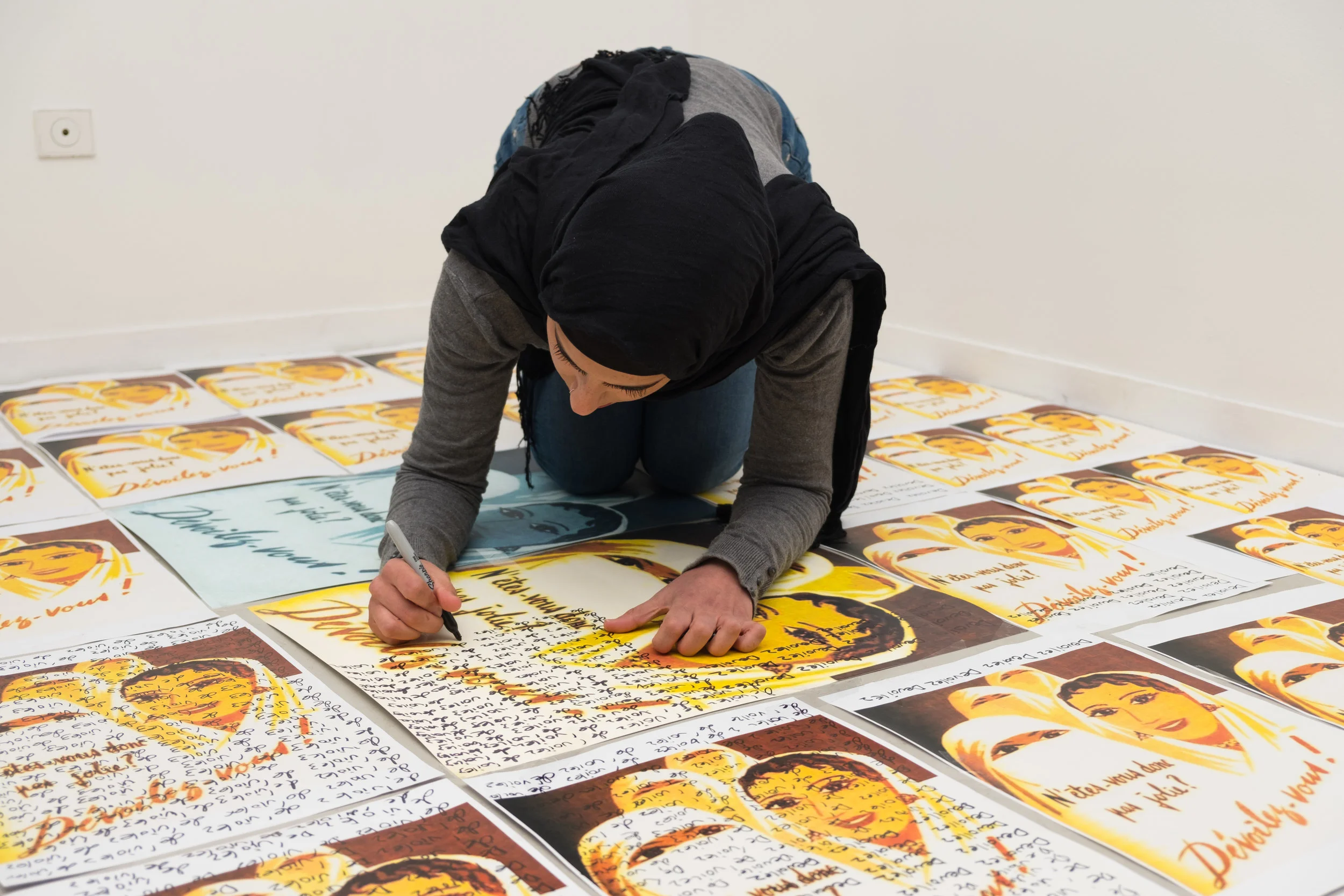





Performed at Cite’ De Arts International, Paris, France
Corresponding Essay
In 1957 during the Algerian war of Independence, special ceremonies were staged across Algeria, in which wives of French colonial officers unveiled Algerian women in public to demonstrate how Muslim women had been won over to European values and away from the independence struggle. The unveilings were publicised and presented to the government in Paris as spontaneous acts. This poster shown in the first image was part of the propaganda. Historians would later find that some of the women who participated in these ceremonies never even wore the veil before. Others were pressured by the army to participate.
Following the staged unveilings, many Algerian women began wearing the veil. They wanted to make clear that they would define the terms of their emancipation – rather than being forcefully liberated by the French colonisers. When the war of independence was won in 1963 many of these women returned to not wearing the veil.
I am reminded of this history when thinking about the recent debates about Hijab, Niqab, or Burkha across Europe. Somehow in times of crisis, the female body conveniently becomes the battleground for ideological and political warfare.
My practice is centred on understanding and contextualizing the female experience as a way of recalibrating the way non-western women are seen and represented. We have not had the opportunity to create our own subjectivity. At home we are seen through the eyes of men (as caregivers, weak, subservient) and abroad we are seen through a lens of oriental femininity (oppressed, exotic, beautiful). Over time we have internalized these forms of representation so that it’s hard to know the difference.
I use stories of female experiences and spaces as a way of reframing the colonial gaze and subverting the male gaze. For my performance act at Cite’ De Arts Internationale I wanted to use this opportunity to showcase an experience of a woman who chooses to take Hijab in a space that makes her feel uncomfortable and oppressed. Surrounded by propaganda posters from 1957 that read N’etes – vous done pas jolie? De’voilez-vous! (aren’t you pretty? Reveal yourself!), I am on my hands and knees writing “De-voilez (unveil)” in repetition as way of forcing myself to comply, similar to a child who has been punished at school. After an hour of writing and being in this uncomfortable position, my knees and hands gave away, which becomes apparent in my hand writing.
This act is an analogy for the way women are made to feel in a world that constantly uses their bodies for different agendas without acknowledging their experience of it. Whether or not the ban of the Niqab across Europe is right or wrong, the fact remains that the debate surrounding it has created an uncomfortable space for all women to exist (including women who choose not to cover at all). It has fuelled an environment that’s left South Asian and Middle eastern women feeling alienated and perpetuates the post-colonial lens through which we are seen. There is no political and/or religious statement being made here. On the contrary the idea is to remove those associations from the female experience.